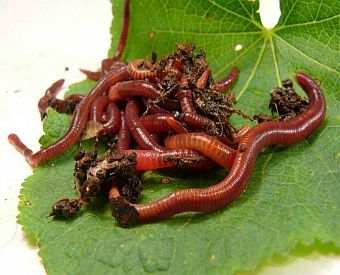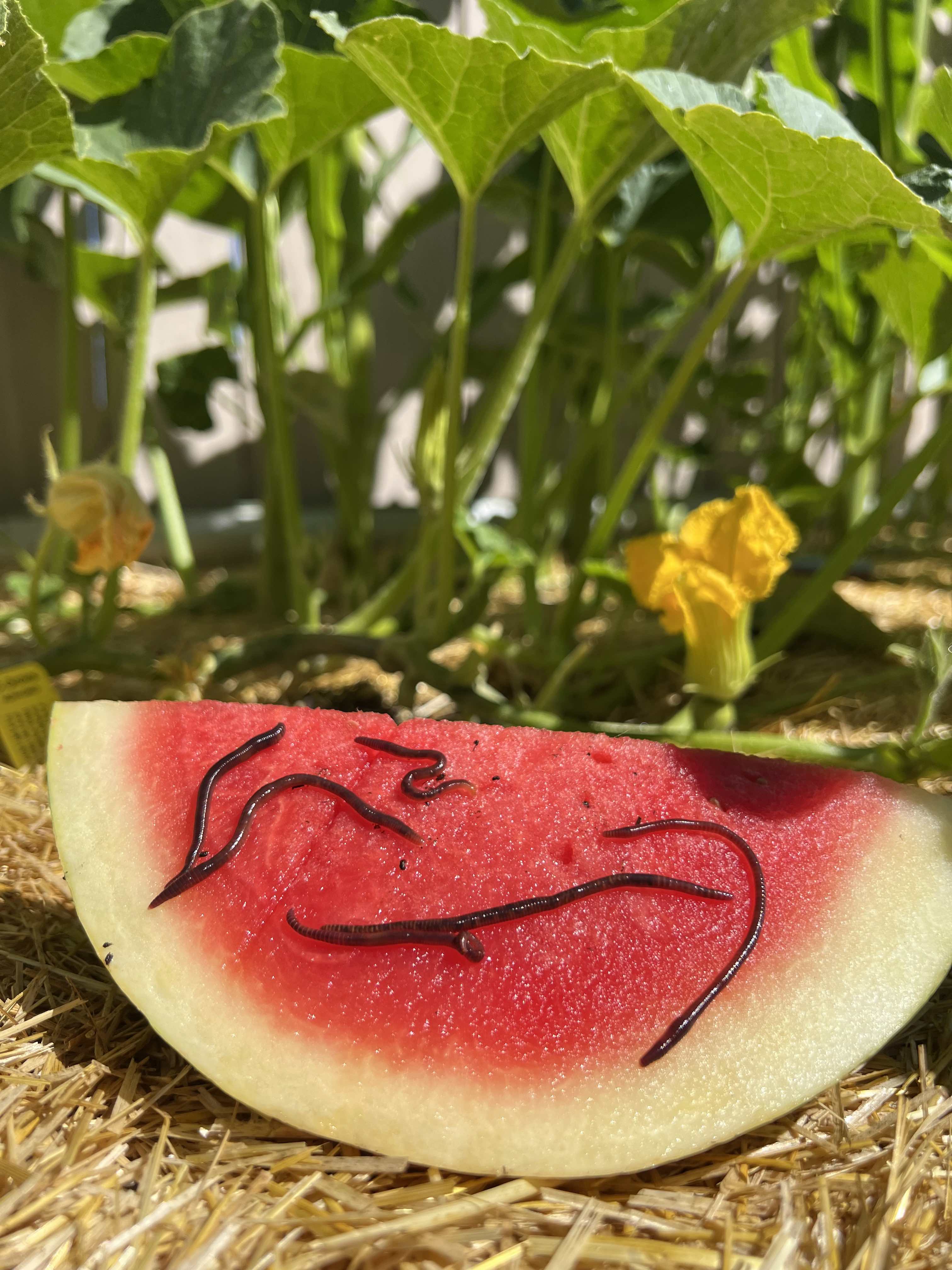Organic Composting with Red Wiggler Worms - Increase Your Yard's Development
Organic Composting with Red Wiggler Worms - Increase Your Yard's Development
Blog Article
Red Wiggler Worms Demystified: Opening the Tricks of Vermiculture for Greener Living and Nutrient-Rich Soil
In the realm of lasting practices for enriching dirt high quality and promoting eco-conscious living, red wiggler worms play a critical yet typically neglected duty. These modest animals have the impressive capability to transform organic waste right into nutrient-rich castings that work as a powerful natural fertilizer. By delving right into the world of vermiculture, one can uncover a variety of benefits that expand much beyond traditional composting approaches. Comprehending the complexities of caring for these worms, enhancing their environment, and utilizing their castings can bring about a greener lifestyle and much healthier dirt for plants to grow.
The Function of Red Wiggler Worms
Red Wiggler worms play an important function in composting systems by effectively breaking down raw material into nutrient-rich spreadings. These ravenous eaters eat a range of natural products, such as kitchen scraps, backyard waste, and paper products. As they feed, the worms' digestive system processes break down the raw material right into a penalty, dark, and nutrient-dense material called worm castings or vermicompost.
The spreadings generated by Red Wiggler worms are extremely helpful for dirt health and plant growth. They are abundant in essential nutrients like phosphorus, potassium, and nitrogen, which are essential for sustaining healthy and balanced plant development. Additionally, worm castings include useful germs and enzymes that aid boost dirt framework, rise water retention, and boost nutrient uptake by plants.
Advantages of Vermicomposting

It enhances soil framework, enhances dirt oygenation, and enhances dirt wetness retention. Vermicompost additionally enhances the soil with essential nutrients like potassium, phosphorus, and nitrogen, advertising plant development and total dirt fertility.
In addition, vermicomposting assistances lasting horticulture practices by supplying a all-natural and chemical-free alternative to synthetic fertilizers. Red Wiggler Worms. This ecologically pleasant strategy not only improves the dirt yet also helps in reducing reliance on unsafe chemicals, advertising a greener and much more sustainable means of horticulture
Establishing a Worm Bin
When establishing a worm bin for vermicomposting, appropriate arrangement is crucial to ensure the success of the composting process. The initial step in establishing a worm bin is selecting an ideal container. This can be a plastic container or wood box that provides enough area for the worms to walk basics around and has proper drainage holes to avoid waterlogging. Next off, a bed linens product such as shredded paper, cardboard, or coconut coir need to be included to the container. This bed linens provides a comfortable environment for the worms and helps maintain wetness levels.
After including the bed linens, present the red wiggler worms to the bin. It is recommended to start with a little number of worms and slowly enhance as they multiply. The worms ought to after that be provided with food scraps such as vegetables and fruit peels, coffee grounds, and eggshells. It is important to stay clear of including meat, dairy products, oily, or salty foods to avoid bring in parasites and developing undesirable odors.
Frequently keep an eye on the dampness levels and temperature level in the worm container to ensure optimum conditions for the worms. With proper configuration and maintenance, the worm bin will properly transform organic waste into nutrient-rich garden compost for your plants and garden.
Collecting Worm Castings
To efficiently gather nutrient-rich worm castings from your vermicomposting system, a systematic harvesting approach is necessary. There are a couple of key actions to follow to make certain a successful procedure when it comes time to gather the worm spreadings. Stop adding fresh food scraps to one side of the worm container for a pair of weeks before collecting. This encourages the worms to migrate sideways with fresh bed linens and food, making it much easier to scoop out the castings from the opposite.

Troubleshooting Common Issues
Recognizing and dealing with usual challenges that might develop during the vermicomposting procedure is important for preserving a healthy and effective worm bin. Including excess food scraps can lead to an accumulation of dampness and acidity in the worm container, potentially damaging the worms. Another problem is unpleasant odors emanating from the worm container.
Additionally, if the worm population is decreasing or the worms appear undesirable, maybe due to ecological visit this page stressors such as severe temperatures or pH levels. Keeping track of these factors and making needed adjustments is vital for the health of the worms. By troubleshooting these usual issues without delay, vermicomposters can make sure a effective and smooth vermicomposting process while keeping a flourishing worm populace.

Verdict
In verdict, red wiggler worms play a crucial duty in vermiculture by breaking down organic issue into nutrient-rich soil. Establishing up a worm container is necessary for successful vermiculture, and gathering worm spreadings supplies useful compost for horticulture.
As they feed, the worms' digestive procedures break down the organic matter into a penalty, dark, and nutrient-dense material known as worm spreadings or vermicompost.
The castings created by Red Wiggler worms are very helpful for dirt health and wellness and plant growth. Including excess food scraps can lead to an accumulation of wetness and acidity in the worm container, possibly harming the worms.In addition, if the worm population is decreasing or the worms appear harmful, it might be due to environmental stressors such as severe temperatures or pH degrees. Setting up a worm container is essential for effective vermiculture, and harvesting worm castings provides valuable compost for gardening.
Report this page